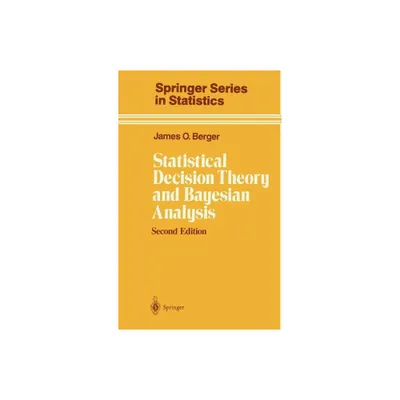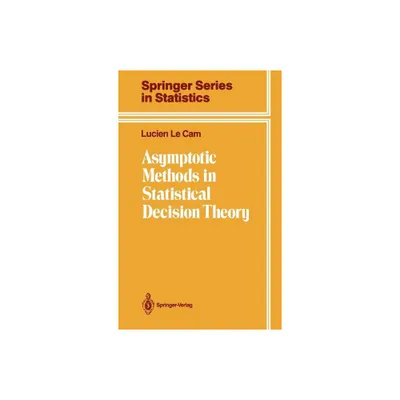Home
Statistical Decision Theory: Estimation, Testing, and Selection / Edition 1
Loading Inventory...
Barnes and Noble
Statistical Decision Theory: Estimation, Testing, and Selection / Edition 1
Current price: $169.99


Barnes and Noble
Statistical Decision Theory: Estimation, Testing, and Selection / Edition 1
Current price: $169.99
Loading Inventory...
Size: OS
*Product Information may vary - to confirm product availability, pricing, and additional information please contact Barnes and Noble
This monograph is written for advanced Master’s students, Ph.D. students, and researchers in mathematical statistics and decision theory. It should be useful not only as a basis for graduate courses, seminars, Ph.D. programs, and self-studies, but also as a reference tool. Attheveryleast,readersshouldbefamiliar withbasicconceptscoveredin both advanced undergraduate courses on probability and statistics and int- ductory graduate-level courses on probability theory, mathematical statistics, and analysis. Most statements and proofs appear in a form where standard arguments from measure theory and analysis are sufficient. When additional information is necessary, technical tools, additional measure-theoretic facts, and advanced probabilistic results are presented in condensed form in an - pendix. In particular, topics from measure theory and from the theory of weak convergence of distributions are treated in detail with reference to m- ern books on probability theory, such as Billingsley (1968), Kallenberg (1997, 2002), and Dudley (2002). Building on foundational knowledge, this book acquaints readers with the concepts of classicalfinite sample size decision theory and modern asymptotic decision theory in the sense of LeCam. To this end, systematic applications to the fields of parameter estimation, testing hypotheses, and selection of po- lations are included. Some of the problems contain additional information in order to round o? the results, whereas other problems, equipped with so- tions, have a more technical character. The latter play the role of auxiliary results and as such they allow readers to become familiar with the advanced techniques of mathematical statistics.


















